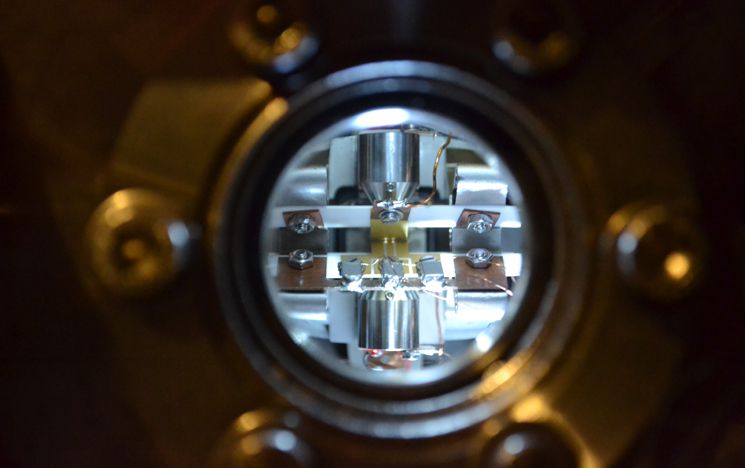Research
Ion Trap Cavity-QED and Molecular Physics Research Group at the University of Sussex: Our research group is using trapped ions for a range of exciting applications and for fundamental research.
Cavity QED research
Trapped ions are one of the most promising qubits for the implementation of quantum information systems. We use optical cavities to facilitate the efficient interconnection of individual ion traps by using photonic links to form larger scale systems. In the ITCM Research Group we are conducting a variety of advanced research experiments to investigate different schemes that create efficient ion-photon interfaces.
Find out more about Cavity QED research
Molecular Physics
Cold molecular ions are ideal systems to investigate cold chemical reactions in which the collision dynamics can be governed by quantum mechanical effects such as tunnelling and reflections on submerged barriers. A prerequisite for studying these reactions and many other applications is the control and the detection of the internal molecular states. We aim to develop and employ these tools.
Find out more about Molecular Physics
Portable optical atomic clocks
Optical atomic clocks are the most accurate time-keeping instruments to date. However, their large size, high cost and high technical complexity of operation impede their widespread use outside of highly specialised research laboratories. Making use of the latest advances in optical fibre components and diode laser sources, we are developing a compact atomic clock based on a single calcium ion. The system is to run autonomously, and will offer accuracy and stability levels outclassing current commercially available systems of similar size, weight and power characteristics.
Find out more about Portable optical atomic clocks
Student projects
We are proud of the work our project students carry out in our laboratories. Our students conduct an individual supervised research project over a set period of time. During the course of their project work they will learn how to analyse relevant data, learn about the theoretical background and do laboratory work.
